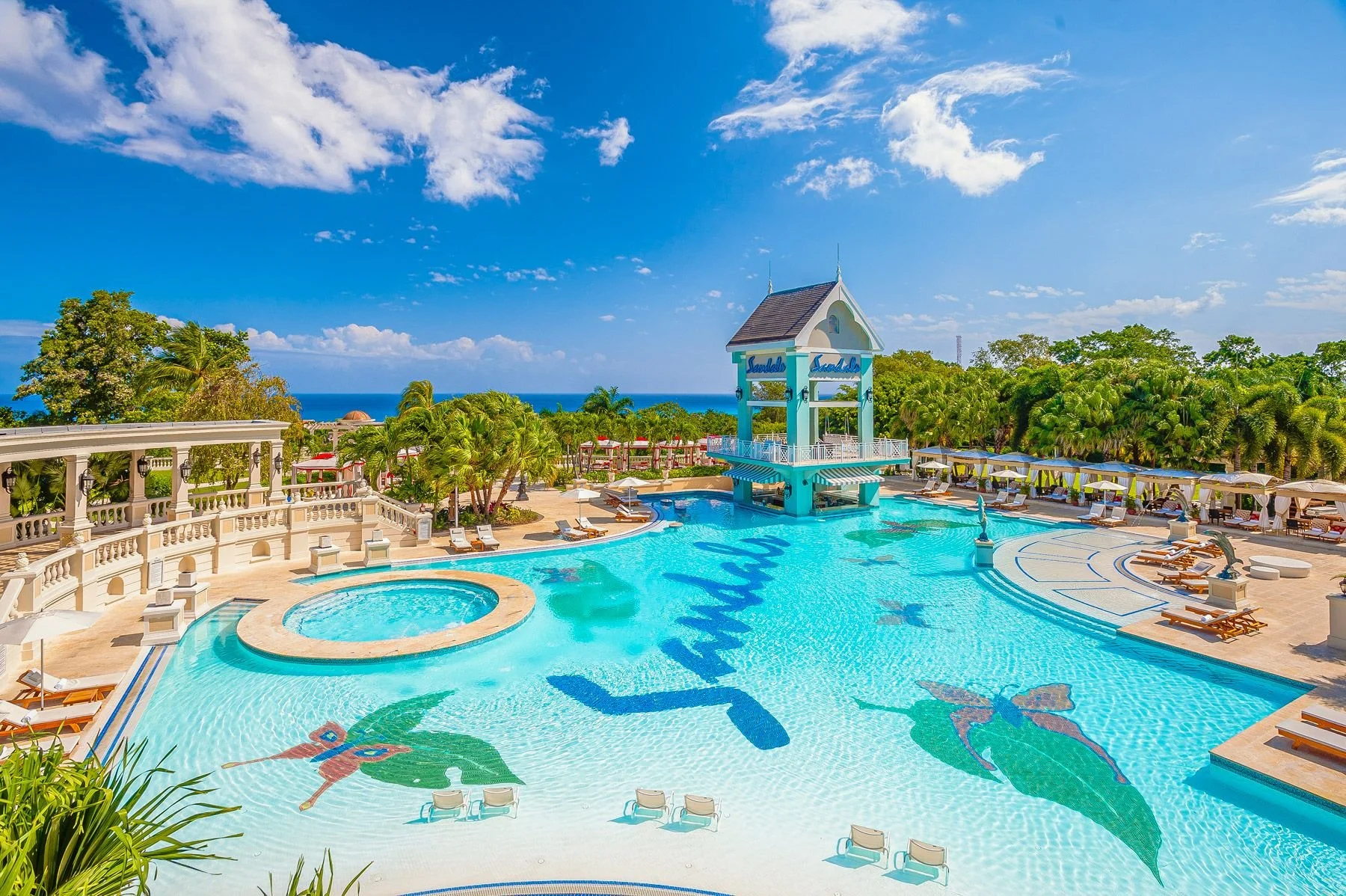Hotel Commission Rates for Travel Agents
Picture this: You've just spent hours crafting the perfect vacation package for your client, found them the ideal boutique hotel overlooking the Mediterranean, and secured their dream itinerary! But here's what really gets your heart racing as a travel agent – knowing you'll earn a solid commission from that hotel booking. Understanding hotel commission rates isn't just about making money; it's about building a sustainable travel business that rewards your expertise and dedication!
Hotel commissions represent one of the most reliable income streams for travel agents, but the landscape can be surprisingly complex! Whether you're a seasoned professional looking to maximize your earnings or a newcomer trying to decode the commission maze, this guide breaks down everything you need to know about hotel commission rates, payment structures, and strategies to boost your bottom line! If you’re interested in becoming at Travel Agent check us out here at MainStreet Travel, we have a FREE membership!
Understanding Hotel Commission Basics
Hotel commissions are fees paid by hotels to travel agents for bookings made on behalf of clients. Think of it as the hotel's way of saying "thanks for sending us business" – except it's a lot more systematic than that. These commissions typically range from 5% to 15% of the room rate, though rates can vary significantly based on multiple factors.
The commission is calculated on the room rate only, not on taxes or resort fees. This distinction matters more than you might think, especially since resort fees have become increasingly common and can represent a substantial portion of the total guest cost.
Current Hotel Commission Rate Ranges
Standard Commission Rates
Most hotels offer commission rates within these ranges:
Domestic hotels: 7-10% of room rate
International hotels: 10-15% of room rate
All-inclusive resorts: 10% but on higher total package prices
Boutique hotels: Often 10% with potential for negotiation
Luxury properties: 8-15% depending on brand and volume
Major Hotel Chain Commission Structures
Marriott operates a tiered system where preferred agencies receive 10% commission while standard agencies get 8%. Some extended stay brands within the Marriott portfolio offer different structures, and the company processes commissions for transient bookings at commissionable rates.
Expedia's Travel Agent Affiliate Program (TAAP) offers one of the most detailed tier structures in the industry:
Standard tier: Up to 12% commission
Silver tier: 13% commission (for $30,000+ annual bookings)
Gold tier: 13.5% commission (for $120,000+ annual bookings)
Platinum tier: 14% commission (for $500,000+ annual bookings)
Properties within Expedia are categorized into Premium Plus (11-13%), Premium (9-11%), Basic Plus (6.5-8.5%), and Basic (3.5-5%) tiers based on how much they pay Expedia for listing and marketing.
How Commission Tiers and Volume Impact Earnings
The travel industry rewards loyalty and volume through tiered commission structures. Here's where it gets interesting for your business planning.
Volume-Based Commission Increases
Most suppliers use annual sales volume to determine commission levels. A typical structure might look like:
$0-$49,999 annual sales: 10% commission
$50,000-$249,999: 13% commission
$250,000-$499,999: 14% commission
$500,000+: 15% commission
This is where working with a host agency becomes financially advantageous. Solo agents struggle to reach high volume thresholds, but host agencies combine their agents' bookings to negotiate better rates.
Host Agency Commission Splits
When working with a host agency, you'll typically see commission splits ranging from 70/30 to 90/10 in your favor. Here's how the math works:
If a supplier pays $1,000 commission on a booking:
With an 80/20 host agency split: You receive $800, host keeps $200
With a 90/10 split: You receive $900, host keeps $100
We offer a 70/30 commission split, most places offering anything higher will charge monthly fees on top of that. Some places will start you off lower and bring you up from there when you reach certain sale markers.
Payment Terms and Processing
Typical Payment Timeframes
Hotel commission payments follow industry-standard timelines that every travel agent should understand:
Standard payment window: 30 days after client checkout
Some suppliers: 2-4 weeks post-checkout
Group cruises: Often faster than individual bookings
Extended delays: Some suppliers may take 60+ days
Commission Payment Terms
Most hotel commission agreements specify "Net 30" payment terms, meaning payment is due within 30 days of the invoice date. Some contracts include penalty clauses for late payments, such as an additional 1.5% per month on unpaid balances after 30 days.
What's Commissionable vs. Non-Commissionable
Understanding what earns commission prevents disappointments down the road:
Typically commissionable:
Standard room rates at published prices
Upgraded rooms booked at group rates or higher
Extended stays at eligible rates
Usually non-commissionable:
Discount rates below group pricing
Staff rooms and comp accommodations
Convention/group rates with separate agreements
Resort fees and taxes
Rooms with existing third-party commissions
Maximizing Your Hotel Commission Earnings
Strategic Supplier Relationships
The most successful travel agents don't try to sell everything to everyone. Instead, they focus on building strong relationships with a select group of preferred suppliers.
The 70% Rule: Aim to do at least 70% of your sales with your preferred vendors. This concentration allows you to:
Negotiate higher commission rates
Become the recognized expert for specific properties
Build personal relationships with supplier representatives
Access exclusive deals and FAM trips
Going Direct vs. Using Consortiums
While consortiums provide valuable leverage for new agents, established agents can often earn more by dealing directly with hotels. When you eliminate intermediaries, hotels can offer higher commission rates since they're not splitting payments with multiple parties.
Focus on Higher-Value Bookings
The math is simple: 15% of $5,000 beats 15% of $2,500 every time. Luxury and high-end properties typically offer:
Higher absolute commission dollars
Clients who value and need agent services
Less price shopping and comparison requests
More add-on service opportunities
Group Bookings Strategy
Group bookings can be particularly lucrative because you do similar work for multiple room nights. A 20-room group booking generates the same commission as 20 individual bookings but with less overall effort once the initial arrangement is secured.
Commission Tracking and Management
Essential Record-Keeping
Successful agents maintain meticulous commission tracking:
Booking confirmation numbers and dates
Expected commission amounts and rates
Client checkout dates
Payment due dates based on supplier terms
Follow-up schedules for overdue payments
Using Technology Tools
Most host agencies provide commission tracking tools through their CRM systems. These platforms allow you to:
Monitor booking status in real-time
Set up payment alerts for overdue commissions
Generate reports for tax and business planning
Research historical commission patterns
Common Commission Challenges and Solutions
Late or Missing Payments
Commission payment delays are unfortunately common in the industry. Here's how to address them:
Prevention strategies:
Work with suppliers who use automated commission processing systems
Verify commission eligibility before booking
Maintain detailed booking records
Use GDS filters to identify commission-friendly properties
Resolution approaches:
Follow up promptly on overdue payments
Maintain professional relationships with supplier payment departments
Consider working with commission collection services for persistent issues
Document everything for potential legal action
Disputed Commissions
Sometimes hotels dispute commission eligibility after the fact. Common reasons include:
Bookings made at non-commissionable rates
Early checkouts or cancellations
Rate changes after booking
Missing agent identification numbers
Future Trends in Hotel Commissions
Technology Integration
New platforms are emerging to automate the commission process entirely, linking agencies directly with hotels and eliminating manual payment processing. These systems promise faster payments and reduced disputes.
Dynamic Commission Models
Some suppliers are experimenting with dynamic commission rates based on demand, seasonality, and booking lead times. This could create new opportunities for agents who understand market timing.
Preferred Partnership Evolution
The trend toward preferred partnerships continues to intensify, with suppliers offering enhanced commissions, exclusive access, and additional perks to agents who consistently drive business their way.
FAQ’s
How long does it take to receive hotel commission payments?
Most hotel commissions are paid 30 days after your client checks out. However, some suppliers pay within 2-4 weeks, while others may take up to 60 days. Group bookings, particularly cruises, often process faster than individual reservations.
Can I earn commission on my own hotel bookings?
This depends on your host agency's policies. Some agencies allow agents to earn commission on personal bookings, while others have restrictions or require maintaining a specific ratio of client-to-self bookings. Check with your host agency for their specific guidelines.
Why do some hotels refuse to pay commissions?
Hotels may not pay commissions for several reasons: the booking was made at a non-commissionable rate, it was a group rate with separate commission agreements, the stay was cancelled or modified, resort fees and taxes aren't commissionable, or there were missing agent identification details at time of booking.
What's the difference between net and commissionable rates?
Net rates are wholesale prices where you add your markup to determine the client's final price. Commissionable rates are retail prices where the hotel pays you a percentage commission after the stay. Many agents prefer commissionable rates because they're simpler to manage and the commission is guaranteed.
How do I increase my hotel commission rates?
Focus on building volume with preferred suppliers, maintain at least 70% of sales with your top partners, work directly with hotels when possible, sell higher-value properties, pursue group bookings, and avoid discount suppliers that offer minimal margins. Building strong supplier relationships often leads to enhanced commission offers.
Do online travel agencies pay higher commissions than traditional travel agents?
Actually, it's the opposite. Online travel agencies like Booking.com charge hotels up to 30% commission, which is why many hotels prefer working with traditional travel agents who typically charge 5-15%. This preference often translates to better rates and perks for travel agent bookings.
When should I charge service fees instead of relying on commissions?
Consider charging service fees for airline bookings (which rarely pay commission), complex itinerary planning, consultation services, and when working with suppliers that don't offer reliable commission payments. Fees also help with cash flow since they're paid upfront rather than after travel completion.
How do I track overdue commission payments?
Maintain a spreadsheet or use your host agency's CRM system to track booking dates, client checkout dates, expected payment dates (usually 30 days post-checkout), and follow-up schedules. Set calendar reminders to follow up on payments that are 45+ days overdue.
Building Your Commission-Based Success
Hotel commissions remain one of the most reliable revenue streams in the travel industry, but success requires strategic thinking beyond just making bookings. The agents earning the highest commissions understand that it's not about selling everything to everyone – it's about building deep relationships with preferred suppliers, focusing on higher-value bookings, and maintaining meticulous business practices!
Remember that commission rates are just one piece of the puzzle. Payment reliability, supplier support, and client satisfaction all contribute to long-term success! By focusing on quality partnerships, understanding the intricacies of commission structures, and staying informed about industry trends, you'll be well-positioned to build a thriving, commission-based travel business!
The travel industry rewards expertise, relationships, and persistence. Master these hotel commission fundamentals, and you'll have a solid foundation for growing your travel agent income while providing exceptional value to your clients! Remember to check out our FREE membership and get started on a new exciting career today!










